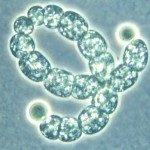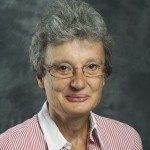Lien vers Pubmed [PMID] – 23410935
Syst. Appl. Microbiol. 2013 Feb;36(1):69-73
High quality 16S ribosomal RNA (rRNA) gene sequences from the type strains of all species with validly published names, as defined by the International Code of Nomenclature of Bacteria, are a prerequisite for their accurate affiliations within the global genealogical classification and for the recognition of potential new taxa. During the last few years, the Living Tree Project (LTP) has taken care to create a high quality, aligned 16S and 23S rRNA gene sequence database of all type strains. However, the manual curation of the sequence dataset and type strain information revealed that a total of 552 “orphan” species (about 5.7% of the currently classified species) had to be excluded from the reference trees. Among them, 322 type strains were not represented by an SSU entry in the public sequence repositories. The remaining 230 type strains had to be discarded due to bad sequence quality. Since 2010, the LTP team has coordinated a network of researchers and culture collections in order to improve the situation by (re)-sequencing the type strains of these “orphan” species. As a result, we can now report 351 16S rRNA gene sequences of type strains. Nevertheless, 201 species could not be sequenced because cultivable type strains were not available (121), the cultures had either been lost or were never deposited in the first place (66), or it was not possible due to other constraints (14). The International Code of Nomenclature of Bacteria provides a number of mechanisms to deal with the problem of missing type strains and we recommend that due consideration be given to the appropriate mechanisms in order to help solve some of these issues.



